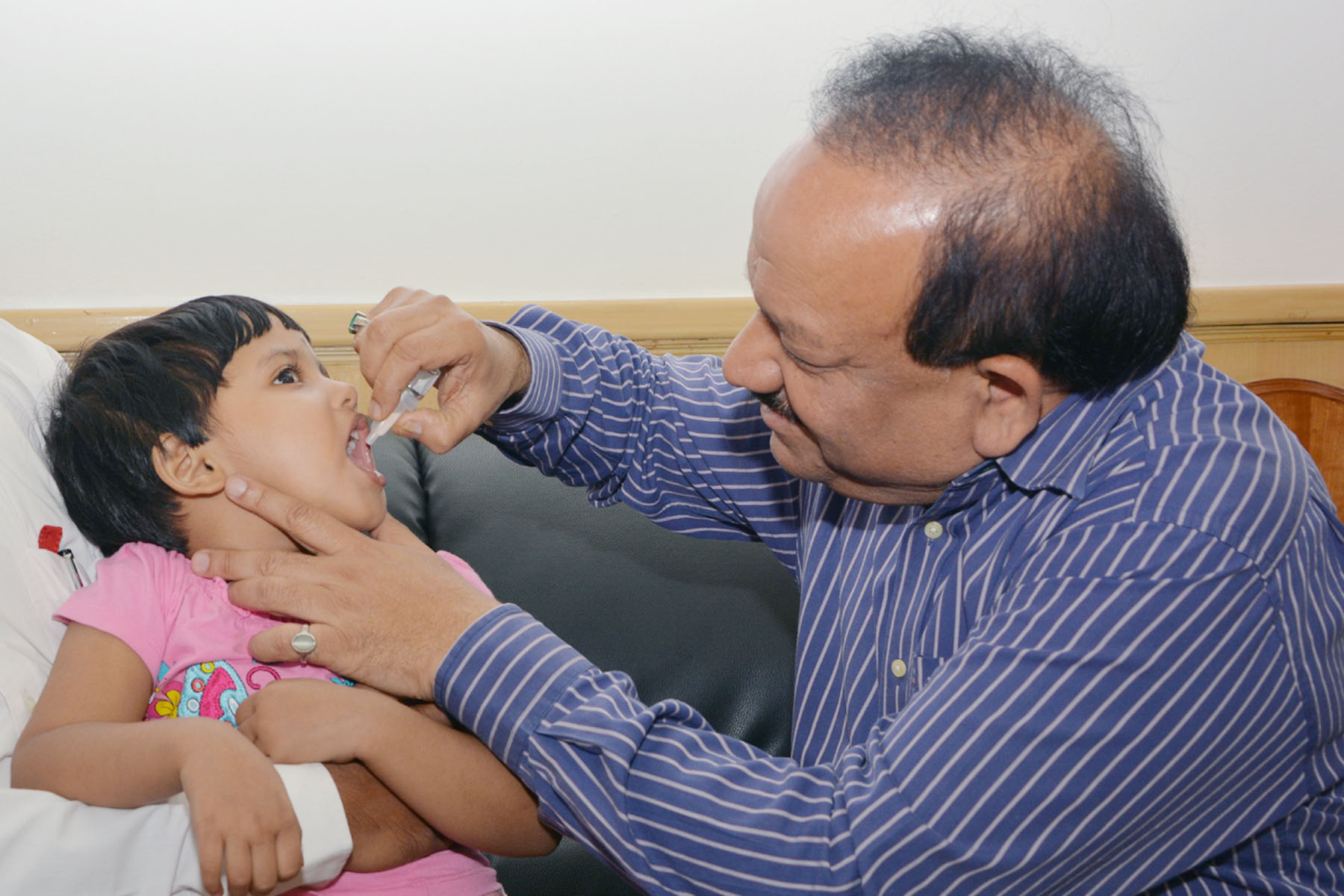Polio eradication: India offers to help Pakistan
October 27, 2014 | Monday | News | By Rahul Koul Koul
Polio eradication: India offers help to Pakistan
Dr Harsh Vardhan administering the polio vaccine drops to children under-five years to mark the World Polio Day, in New Delhi
"I have been through the plan and find that the script is perfect. Pakistan has resolved to set up monitoring cells at the grassroots level. They are also talking of involving social groups, a strategy which worked wonderfully in India," said Dr Harsh Vardhan recently on the occasion of the World Polio Day, while welcoming Pakistan's prime minister, Mr Nawaz Sharif's recent declaration of adoption of a "National Emergency Action Plan-2014". The program will be fully state funded till 2018.
India's social mobilization network for the fight against polio, which was originally conceived in Delhi in 1994 when Dr Harsh Vardhan was Health Minister of the state, has been lauded by all international organizations including World Health Organisation, UNICEF, Rotary International, and the United States Center for Disease Control.
Dr Harsh Vardhan noted, "This particular model would stand Pakistan in good stead in her own anti-Polio drive. Unless all stakeholders in society, most importantly in Pakistan's context her religious clergy, are involved, it would be impossible to achieve total polio eradication."
Recalling the joint statement issued at the end of the foreign minister-level talks in September 2012, Dr Vardhan pointed out that the two countries had already talked of institutionalizing cooperation on polio eradication through the mechanism of a Joint Working Group. There is also a technical level working group in the area of health cooperation.
However, there was no significant progress on this front. India achieved full freedom from polio in January 2014 due to the fact that not a single new case had been detected since January 2011. Dr Vardhan said, "This year's World Polio Day is an emotional experience for me because it is the first to be observed since we became a polio free nation. When I launched the first Pulse Polio drive in Delhi in 1994 this seemed an impossible dream."
In the context of Pakistan and Afghanistan, polio is just a bus ride away. Dr Harsh Vardhan said that special measures have been put in place at border crossings. These include vaccination facilities for travellers, travelling both ways to Pakistan and having emergency response plans in place along with teams to execute them.
WHO's representative in India, Dr Nata Menabde said on the occasion, "We are using the lessons learnt from polio eradication to strengthen routine immunization in India. The polio infrastructure is now also being used for other health interventions, especially to protect our children from vaccine-preventable and other diseases."
Mr Deepak Kapur, Rotary International's India PolioPlus chair, echoed Dr Harsh Vardhan's sentiments on Pakistan. He said that the fight against polio should be a global mission because no child in India is free till the disease is eradicated everywhere.
"India's experience of eradicating polio proves that the obstacles which stand in the way of our ambitious goals for children can be overcome. UNICEF remains a committed partner in the polio eradication effort and our social mobilization network will continue to be active and harness this great momentum and leverage it for broader health initiatives for improving the lives of children," said Mr Louis-Georges Arsenault, UNICEF India representative.









